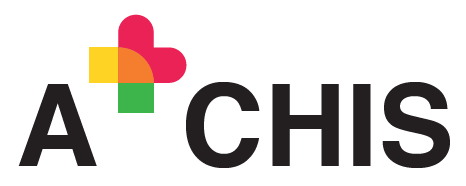A+CHIS – Human-Centered Interactive Adaptive Visual Approaches in High-Quality Health Information

Today, CHIS exist from posters and brochures to popular science publications and media reports. Also, (self-)curated medical information is abundant on the Internet in different forms, e.g., discussions, question-answering, and commercially. Information is generally provided statically, i.e., the same medical content is presented to everyone. However, patients vary regarding previous knowledge and information needs, e.g., depending on gender, age, personality, perception, etc. Thus, our main research question and objective is: How can evidence-based medical knowledge, cognitive-psychological mechanisms, and novel interactive data visualizations be combined to form adaptive and interactive consumer health information systems that take account of individual health information needs, and increase health literacy by providing a reliable source of medical knowledge?
Our research consortium brings together excellent complementary expertise. The development of A+CHIS requires a collaborative approach involving three necessary and complementary disciplines for our scientific goals, represented by the following scientific partners and research areas:
- Knowledge Visualization for Adaptive Health Information — Graz University of Technology
- Evidence-based Consumer Health Information — Medical University of Graz
- Cognitive Psychology of Adaptive Health Information Systems — University of Graz
Cognitive Psychology of Adaptive Health Information Systems (area 3) covers cognitive aspects involved when consumers seek and process health information. Amongst others, a key role will be played by the study of pre-knowledge, motivation, interests, cognitive biases, and expectations that influence the most suitable quantity, detail, context and presentation of information for specific consumers. We will define and inform the adaptation mechanisms needed to suit individual consumer profiles. Another key task is to design and run evaluation experiments on the proposed adaptive approaches. The area is led by the Department of Psychology at the University of Graz (Uni Graz). The department conducts research into cognitive psychology, including such aspects as the identification of mechanisms of knowledge, motivation and learning capacity, that takes into account that human cognition is vulnerable to many known cognitive biases and misconceptions. As far as health information is concerned, this can result in problems such as over-information or over-diagnosis. Research from Uni Graz will introduce new concepts relating to adaptive health information and help avoid such cognitive bias. Research in area 3 is embedded in international research on knowledge, instructional design and technology enhanced learning. We contribute to interactivity, adaptivity and personalization in knowledge assessment and instructional design. We build on existing instructional learning theories and combine this field of research with research on cognitive bias and misconceptions. Moreover, we use and enhance formative and summative evaluation methods to assess different degrees and forms of adaptive and interactive A+CHIS prototypes.
Project Homepage: https://apchis.cgv.tugraz.at/
Team (area 3):
- Dietrich Albert (Area Lead) — Cognitive Psychology and Neuroscience: Cognitive Science Section
- Bettina Kubicek (Deputy Area Lead) — Work and Organizational Psychology Section
- Michael Bedek (Postdoc Researcher) — Cognitive Psychology and Neuroscience: Cognitive Science Section
- Cordula Kupfer (Doctoral Candidate) — Work and Organizational Psychology Section
- Wilfried Grassegger (Student Project Assistant) — Cognitive Science Section
- Sarah von Götz (Student Project Assistant) — Cognitive Science Section
- Niklas Schramm (Student Project Assistant) — Cognitive Science Section
Partners:
- Graz University of Technology (Lead Research Institution) — Institute of Computer Graphics and Knowledge Visualisation
- Medical University of Graz (Collaborating Research Institution) — Institute of General Practice and Evidence-Based Health Services Research
- University of Graz (Collaborating Research Institution) — Department of Psychology — Cognitive Science Section
A+CHIS is an interdisciplinary research group project funded by the Austrian Science Fund (FWF) for 4,5 years. Prof. Dr. Tobias Schreck (TU Graz) is project coordinator, Prof. Dr. Andrea Siebenhofer-Kroitzsch (MedUni Graz), and Prof. Dr. Dietrich Albert (UniGraz) are both area leads. At the Department of Psychology (UniGraz), Prof. Dr. Bettina Kubicek (Deputy Area Lead), Dr. Michael Bedek (PostDoc), and MMag. Cordula Kupfer (Doctoral Candidate) belong to the team. Regarding Cognitive Psychology, Prof. Dr. Susanne Narciss (TU Dresden) as a Collaboration Partner, and Prof. Dr. Alexandra M. Freund (Uni Zürich) as well as Prof. Dr. Margit Pohl (TU Wien) as Advisory Board Members are involved.
Duration: 01.05.2021 — 31.10.2025 (54 Month)
Funding: Supported by the Austrian Science Fund (FWF), Grant No. FG 11-B
- Total Budget: € 1.461.211,26
- Total Funding: € 1.461.211,26
- CSS Funding: € 405.938,64
Co-funding support: Each of the three Universities co-funds the project by a 12 months doctoral candidate research assistant position (preliminary cost estimate per Univ.: € 42.000)